|
Books Should Be Free Loyal Books Free Public Domain Audiobooks & eBook Downloads |
|
|
Books Should Be Free Loyal Books Free Public Domain Audiobooks & eBook Downloads |
|
Non-fiction |
|---|
|
Book type:
Sort by:
View by:
|
By: L. P. Hubbard (?-?) | |
|---|---|
 Little Book for a Little Cook
Little Book for a Little Cook
This charming little book compiles together a number of recipes, set out in an easy to understand manner, along with a poetic story about the stages of bread production. This book was produced as a promotional for a flour production company called Pillsbury. This is a "modern" update compared to the original edition of the book. This version has exact oven temperature settings for each recipe included in a preface for the book, along with more precise suggestions for the baking time. The book has been written for children, however I am certain that adults could enjoy the book equally as much as a child would. | |
By: Edward Jesse (1780-1868) | |
|---|---|
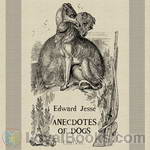 Anecdotes of Dogs
Anecdotes of Dogs
"Histories are more full of examples of the fidelity of dogs than of friends."The character, sensibilities, and intellectual faculties of animals have always been a favourite study, and they are, perhaps, more strongly developed in the dog than in any other quadruped, from the circumstance of his being the constant companion of man. I am aware how much has been written on this subject, but having accumulated many original and interesting anecdotes of this faithful animal, I have attempted to enlarge the general stock of information respecting it... | |
By: Mary Anne Barker (1831-1911) | |
|---|---|
 Station Life in New Zealand
Station Life in New Zealand
Station Life in New Zealand is a collection of cheerful and interesting letters written by Lady Mary Anne Barker (nee Mary Anne Stewart) that is a New Zealand "classic". These letters are described in the Preface as "the exact account of a lady's experience of the brighter and less practical side of colonisation". The letters were written between 1865 and 1868 and cover the time of her travel with her husband (Frederick Broomie) to New Zealand and life on a colonial sheep-station at their homestead "Broomielaw", located in the Province of Canterbury, South Island of New Zealand... | |
By: Bruce S. Wright | |
|---|---|
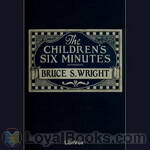 The Children's Six Minutes
The Children's Six Minutes
This is a nice collection of 52 kid-aimed sermons by missionary Wright while he served in the Philippines in the World War I era. Each offers a slice-of-life reference point, an appropriate Bible verse, and hymn. | |
By: Benedetto Croce (1866-1952) | |
|---|---|
 Aesthetic as Science of Expression and General Linguistic
Aesthetic as Science of Expression and General Linguistic
One of the earliest works of this Italian philosopher and literary critic, Aesthetic as Science of Expression and General Linguistic marks the beginning of Croce's elaboration of his highly influential ideas of aesthetics. Croce defines art in terms of intuition and expression, thus replacing beauty as the primary criterion for aesthetic evaluation. | |
By: Randolph B. Marcy (1812-1887) | |
|---|---|
 Prairie Traveler
Prairie Traveler
Commissioned by the US War Department and written in 1859 by a decorated US Army captain, The Prairie Traveler is a complete how-to travel guide for the westward-bound pioneer. Covering topics from first aid for rattlesnake bites to how to travel 70 miles across the desert without water for one's livestock, the guide includes 28 travel itineraries with mileage and firewood availability. | |
By: Sarath Kumar Ghosh (1883-?) | |
|---|---|
 Wonders of the Jungle
Wonders of the Jungle
How do elephants drink? What is the Law of the Jungle at the water hole? How does an elephant baby learn to feed and learn to swim? How do they walk under water? In what order do buffaloes drink? How do buffaloes fight the tiger? These and other wild inhabitants of the Indian jungle such as pigs, wild dogs, deer, camels, bears and birds are discussed in lively stories to entertain but mainly educate children of school age. "One of the great thinkers of the world has said that all the sciences are embodied in natural history... | |
By: N. E. Dionne (1848-1917) | |
|---|---|
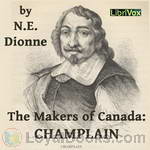 The Makers of Canada: Champlain
The Makers of Canada: Champlain
A biography of Samuel de Champlain, French explorer, founder of Quebec, and father of New France. ( | |
By: Florence Hartley | |
|---|---|
 Ladies' Book of Etiquette, and Manual of Politeness
Ladies' Book of Etiquette, and Manual of Politeness
A guide for ladies, written in 1860, on what is accepted as correct behavior in polite society. The advice covers dress, travelling, staying in hotels, attending and giving parties and balls, making and receiving morning calls, letter writing, how to deal with servants, what accomplishments every well bred lady should be expected to acquire and how to choose a suitable husband. | |
By: Archibald Forbes (1838-1900) | |
|---|---|
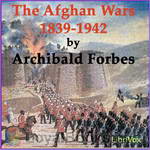 The Afghan Wars 1839-42 and 1878-80, Part 1
The Afghan Wars 1839-42 and 1878-80, Part 1
The First Anglo–Afghan War was fought between British India and Afghanistan from 1839 to 1842. It was one of the first major conflicts during the Great Game, the 19th century competition for power and influence in Central Asia between the United Kingdom and Russia, and also marked one of the worst setbacks inflicted on British power in the region after the consolidation of British Raj by the East India Company. | |
By: J. Morris Slemons (1876-1948) | |
|---|---|
 The Prospective Mother
The Prospective Mother
A Handbook for Women During Pregnancy. This book, written for women who have no special knowledge of medicine, aims to answer the questions which occur to them in the course of pregnancy. Directions for safeguarding their health have been given in detail, and emphasis has been placed upon such measures as may serve to prevent serious complications. (Introduction by J. Morris Slemons) | |
By: Henry Bibb (1815-1854) | |
|---|---|
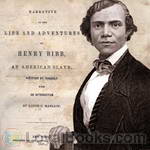 Narrative of the Life and Adventures of Henry Bibb, an American Slave
Narrative of the Life and Adventures of Henry Bibb, an American Slave
Henry Walton Bibb was born a slave. His father was white although his identity was not positively known. Bibb was separated from his mother at a very young age and hired out to other slave owners for most of his childhood. Always yearning for his freedom, he made his first escape from slavery in 1842. He was recaptured and escaped, recaptured and escaped over and over; but he never gave up on his desire to be a man in control of his own destiny. | |
By: Lucy Larcom (1824-1893) | |
|---|---|
 A New England Girlhood: Outlined From Memory
A New England Girlhood: Outlined From Memory
Lucy Larcom was an American poet, teacher, and mil-worker. According to Wikipedia: "Larcom served as a model for the change in women's roles in society." This is her colorful autobiography. Here, she tells about her happy childhood, and her time working in the mill. Along the way, she speaks about topics like morality, independence, love and loss inside a family, a strong belief in god, and the effects of being poor. Fans of Gene Stratton Porter, Fanny Fern and Susan Warner, and Ella Wheeler Wilcox will be delighted with this book. Lucy's sunny personality makes this book a very uplifting and interesting read. | |
By: Elizabeth Wormeley Latimer (1822-1904) | |
|---|---|
 France in the Nineteenth Century
France in the Nineteenth Century
Author Elizabeth Latimer synthesizes notes from a variety of sources to produce this summary of the nation of France in the 19th century. (Summary by Cathy Barratt) | |
By: Henry Ossian Flipper (1856-1940) | |
|---|---|
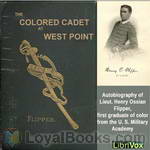 The Colored Cadet at West Point
The Colored Cadet at West Point
Henry Ossian Flipper--born into slavery in Thomasville, Georgia on March 21, 1856--did not learn to read and write until just before the end of the Civil War. Once the war had ended, Flipper attended several schools showing a great aptitude for knowledge. During his freshman year at Atlanta University he applied for admittance to the United States National Military Academy at West Point. He was appointed to the academy in 1873 along with a fellow African American, John W. Williams. Cadet Williams was later dismissed for academic deficiencies. | |
By: Clayton Edwards | |
|---|---|
 Treasury of Heroes and Heroines
Treasury of Heroes and Heroines
It would be pleasant indeed to gather the characters of this book together and listen to the conversation of wholly different but interested couples—for this is a book of contrasts and has been written as such. Lives of the most dramatic and adventurous quality have been gathered from all corners of the earth, and from every age in history, in such a way that they may cover the widest possible variety of human experience. The publishers believe that such a book would not be complete without some characters that are no less real because they have lived only in the minds of men... | |
By: Sarah Knowles Bolton (1841-1916) | |
|---|---|
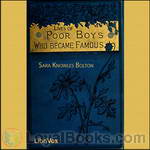 Lives of Poor Boys Who Became Famous
Lives of Poor Boys Who Became Famous
These characters have been chosen from various countries and from varied professions, that the youth who read this book may see that poverty is no barrier to success. It usually develops ambition, and nerves people to action. Life at best has much of struggle, and we need to be cheered and stimulated by the careers of those who have overcome obstacles.If Lincoln and Garfield, both farmer-boys, could come to the Presidency, then there is a chance for other farmer-boys. If Ezra Cornell, a mechanic, could become the president of great telegraph companies, and leave millions to a university, then other mechanics can come to fame... | |
By: Christy Mathewson (1880-1925) | |
|---|---|
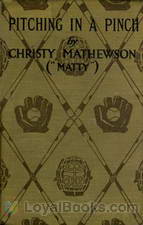 Pitching in a Pinch
Pitching in a Pinch
In this book Mathewson is telling the reader of the game as it is played in the Big Leagues.... It’s as good as his pitching and some exciting things have happened in the Big Leagues, stories that never found their way into the newspapers. Matty has told them. This is a true tale of Big Leaguers, their habits and their methods of playing the game, written by one of them. | |
By: Louise Mack (1870-1935) | |
|---|---|
 Woman's Experiences in the Great War
Woman's Experiences in the Great War
An eye-witness account of the fall of Antwerp to the Germans in the opening months of World War I, Mack’s story has passages of extraordinary vividness and immediacy. Flawed by the most treacly sentiment in some places and the most ferocious anti-German invective in others, her account endures as an uncommonly forthright, passionate testimony to those tragic events and the ordinary people who were the true heroes of them. As a forty-something, coquettish war correspondent wrapped in sable furs... | |
By: Charles R. Gibson (1870-1931) | |
|---|---|
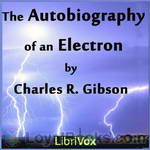 The Autobiography of an Electron
The Autobiography of an Electron
"While many scientific men now understand our place in the universe, we electrons are anxious that every person should know the very important part which we play in the workaday world. It was for this reason that my fellow-electrons urged me to write my own biography. I am pleased to say that my relationship with the scribe who has put down my story in the following pages has been of the most friendly description. I have allowed him to place what he calls "The Scribe's Note" at the beginning of each chapter, but it will be understood clearly that these are merely convenient embellishments, and that I am responsible for the story of my own experiences." (Introduction adapted from the text) | |
By: Susan Edmonstoune Ferrier | |
|---|---|
 Marriage, Volume 1
Marriage, Volume 1
“Love!–A word by superstition thought a God; by use turned to an humour; by self-will made a flattering madness.” – Alexander and Campaspe. Lady Juliana, the indulged and coddled seventeen (”And a half, papa”) year old daughter of the Earl of Cortland, is betrothed by her father to a wealthy old Duke who can give her every luxury. She instead runs away and marries her very handsome but penniless lover. Very soon, they are forced to travel to Scotland to live with his quirky family in a rundown “castle” in the barren wilderness. Can this marriage survive?(Summary by P.Cunningham) | |
By: Fannie Hardy Eckstorm (1865-1946) | |
|---|---|
 The Woodpeckers
The Woodpeckers
The Woodpeckers is a wonderful introduction to the world of bird study for the young naturalist, covering such topics as how he finds food, courting, how he builds his nest, the interesting ways he uses his different body parts as tools, among other topics discussed in the book. If you wish to investigate further, the book has a few diagrams and an Appendix that contains more technical information such as detailed descriptions of the different species of North American woodpeckers which were not read as part of this audiobook. | |
By: John Wight (1866-1944) | |
|---|---|
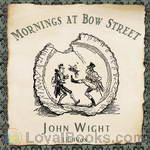 Mornings at Bow Street
Mornings at Bow Street
This is a collection of various articles found in Morning Herald columns. Some are found interesting, some may be hilarious! The 84 pieces of this book are actual reports throughout the 1870s newspaper written by the reporter, John Wight and Illustrated by George Cruikshank | |
By: C. W. Wolf (-1866) | |
|---|---|
 Apis Mellifica
Apis Mellifica
Wolf's essay considers the homeopathic medicine Apis Mellifica, or the poison of the honey bee, as a therapeutic agent based on his experience as a practicing physician. | |
By: Joseph Priestley (1733-1804) | |
|---|---|
 Experiments and Observations on Different Kinds of Air
Experiments and Observations on Different Kinds of Air
Joseph Priestley, FRS (13 March 1733 (O.S.) – 6 February 1804) was an 18th-century English theologian, Dissenting clergyman, natural philosopher, chemist, educator, and political theorist who published over 150 works. In “Experiments and Observations on Different Kinds of Air,” he reviews experiments with gases. A common theme in this work is measuring the volumes of gases held in glass tubes, and their increase or decrease when exposed to other substances. He also tests the effects of gases on mice, plants and insects... | |
By: Q. K. Philander Doesticks (1832-1875) | |
|---|---|
 The Witches of New York
The Witches of New York
A humorous account of visits to various fortune tellers, card readers, seers, and other "witches" of New York. Written by Q.K. Philander Doesticks (a.k.a.Mortimer Thomson). | |
By: Reuben Gold Thwaites (1853-1913) | |
|---|---|
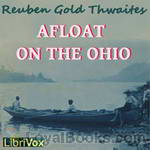 Afloat on the Ohio
Afloat on the Ohio
Afloat on the Ohio, An Historical Pilgrimage, of a Thousand Miles in a Skiff, From Redstone to Cairo.There were four of us pilgrims—my Wife, our Boy of ten and a half years, the Doctor, and I. My object in going—the others went for the outing—was to gather "local color" for work in Western history. The Ohio River was an important factor in the development of the West. I wished to know the great waterway intimately in its various phases,—to see with my own eyes what the borderers saw; in imagination, to redress the pioneer stage, and repeople it. ( From the Preface ) | |
By: Christopher Wilson (1874-1919) | |
|---|---|
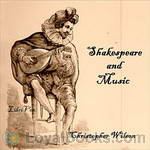 Shakespeare and Music
Shakespeare and Music
Shakespeare's plays are full of music: love songs, comic ditties, serious ballads, and songs for witches and spirits. Over the centuries musicians and composers have also created musical adaptations based on Shakespeare's plays. Composer Christopher Wilson's Shakespeare and Music (1922) documents the musical history of each play across various genres, including opera and incidental music. | |
By: C. C. James (1863-1916) | |
|---|---|
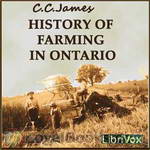 History of Farming in Ontario
History of Farming in Ontario
This paper takes the reader through the early settlement from 1783 to the modern period of 1888-1912. We see how farming and farm industries developed and how the population was distributed during these times. We see the trends of settlers moving into the Urban centers instead of rural and how the farm industries (making cheese, butter, wool, etc) move off the farm to the city factories. Excerpt: “The farmer’s wife in those days was perhaps the most expert master of trades ever known. She could spin and weave, make a carpet or a rug, dye yarns and clothes, and make a straw hat or a birch broom... | |
By: William D. Granger | |
|---|---|
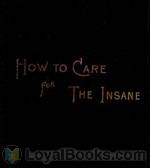 How to Care for the Insane
How to Care for the Insane
"The writer believes that all attendants should be regularly instructed in their duties, and the highest standard of care can be reached only when this is done. He also believes that every person who is allowed to care for the insane will be greatly benefited by such instruction, and will be able to learn every thing taught, if the teacher uses simple methods and is patient to instruct."As this manual was originally written in 1886, the basic medical instruction IS out-of-date and should not be used to diagnose any medical problem, nor should be used in the case of an emergency. It has been recorded for entertainment purposes only! | |
By: John Henry Ingram (1842-1916) | |
|---|---|
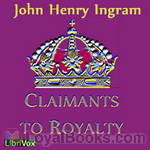 Claimants to Royalty
Claimants to Royalty
A compilation of chronicles of the numerous impostors and impostures of kings, queens, and rulers. | |
By: Marguerite Bernard and Edith Serrell | |
|---|---|
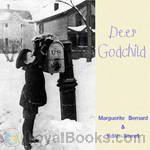 Deer Godchild
Deer Godchild
A young New-Yorker of twelve heard an appeal for the Fatherless Children of France and his heart was touched. He had no money, but he resolved to give his spare time and his utmost energy to support a "kid in France." The French child needed ten cents worth of extra food each day, in order to grow up with strength and courage. The little American godfather earned those ten cents; he sold newspapers at the subway entrance, after school hours, and undertook an amazing variety of more or less lucrative odd jobs... | |